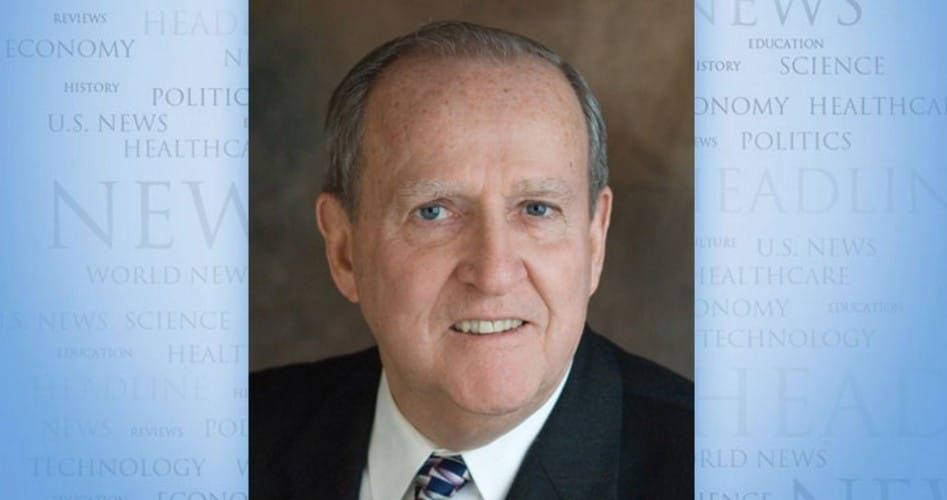
While reports about the death of the ISIS leader dominated all elements of our nation’s media, the influential Washington Post displayed its intent to hide important truth about the man and his crimes. Its Sunday morning (October 27) headline told readers, “Abu Bakr al-Baghdadi, austere religious scholar at helm of Islamic State, dies at 48.” Is “austere religious scholar” all the Post could come up with to describe a man responsible for the deliberate deaths of hundreds — maybe thousands?
Immediately, responses labeled the clearly inadequate description of the vicious murderer as “outrageous.” Widespread disgust at the newspaper’s obvious willingness to cover over the crimes of the ISIS leader generated mock comparisons that could have been employed at the deaths of other notable criminals. Adolf Hitler’s demise could have been headlined, “An avid painter, dog lover, and vegetarian, dies at 56.” Or the death of Osama bin Laden might have described him as “an aspiring construction mogul and business manager.” But no newspaper dared soft-pedaling any headline about the passing of those killers while the Post demonstrated its willingness to cover over Baghdadi’s extremely active contempt for human life.
Fiery reaction from readers forced the Post to change its incredible headline. But there wasn’t anything it could do about what had appeared in its contemptible description of the infamous killer. It had already been delivered to customers throughout the area. Congressman Steve Scalise, a high-ranking Louisiana Republican, commented: “Every day, the Washington Post uses harsher words against Donald Trump than they do in writing about one of the world’s most evil terrorists. Yet we’re supposed to take them at face value. Let that sink in.” Scalise’s remark deserves its own headline but don’t count on seeing one in the Post. Donald Trump, Jr. pointed to the newspaper’s “harsher criticism” of his father while correctly labeling Baghdadi “a known serial rapist and murderer.” And Ivanka Trump said what the Post had done was “Unreal.”
In its now-famous October 27 edition, the Post actually used three headlines to announce Baghdadi’s death. The first stated, “Abu Bakr al-Baghdadi, Islamic State’s ‘terrorist in chief,’ dies at 48.” That realistic description was quickly ditched in favor of labeling the killer merely “an austere religious scholar,” the second headline. The third choice, “Abu Bakr al-Baghdadi, extremist leader of the Islamic State, dies at 48,” came after protests of the second had been received. So, the Post went from “Islamic State’s terrorist in chief” to “austere religious scholar at the helm of Islamic State” in the blink of a busy morning’s eye. Pressure from some Islamists had likely led to discarding the mention of Baghdadi and terrorism alongside Islamic State. So it had to go. The extremely watered-down second choice merely calling the ISIS killer an “austere religious scholar” drew immediate and severe criticism. It was replaced by choice number three labeling him the “extremist leader of the Islamic State.” Let’s hope someone at the Post tells the world who exerted pressure to go from the first to the second headline, and then to a third, and why the Post bowed to such pressure.
So far, only Kristine Coratti Kelly, a spokesperson for the newspaper, has stated that Post “correspondents have spent years in Iraq and Syria documenting ISIS savagery, often at great personal risk.” True enough, but that’s not the point. They weren’t at risk of being schooled by Baghdadi and persuaded to be killers of innocent non-Muslims; they were at risk of being beheaded as others had been for not becoming determined Islamists. Kelly then stated, “Unfortunately, a headline written in haste to portray the origins of Baghdadi didn’t communicate that brutality.” We wonder if the writer of that hastily written second headline will be disciplined in some way. If no such action is taken, we can presume higher ups at the paper were responsible.
Forced to back away from its trivialization of Baghdadi’s well-known and dramatically evil history, the Post managed to mention “Islamic State” in its corrected version. Doing so confirmed what has so often been glossed over or even denied — that Islamic teaching does stimulate some of its adherents to kill infidels who merely stand in the way of having their own religious-political system totally dominate mankind. A reading of the Koran confirms in numerous passages that believers are urged to kill non-believers. This is something many ex-Muslims will readily denounce as men like Baghdadi attempt to convert the world.
In his report about the Post’s now-infamous headline switching, reformed Muslim Shireen Qudosi called Islam “a religion of peace and war.” That characterization, rarely given to Americans who wonder about the sect begun by Mohammed, needs additional airing. Instead, Americans are regularly told, “Islam is a religion of peace.” Qudosi calls that description “fantasy Islam.”
It seems that the Post is not alone in trying to keep readers unaware about Baghdadi’s true motivation. In its tweets about the death of the murderous ISIS leader, Bloomberg News refused to mention the crimes he actually boasted of committing. Its comment stated that Baghdadi was a man “who transformed himself from a little-known teacher of Koranic recitation into the self-proclaimed ruler of an entity that covered swaths of Syria and Iraq.” That severely inadequate description parallels what the Washington Post offered for refusal to tell the whole truth.
The end of Abu Bakr al-Baghdadi offers an opportunity for the Washington Post to begin telling the whole story about a sizable portion of Islam’s followers. But that’s an unlikely development from a newspaper that regularly goes out of its way to laud the many who seek to undo the American dream. We can only hope that what the Post has done in the wake of Baghdadi’s death will dissuade more of its readers from relying on its consistently un-American reportage.
John F. McManus is president emeritus of The John Birch Society.



